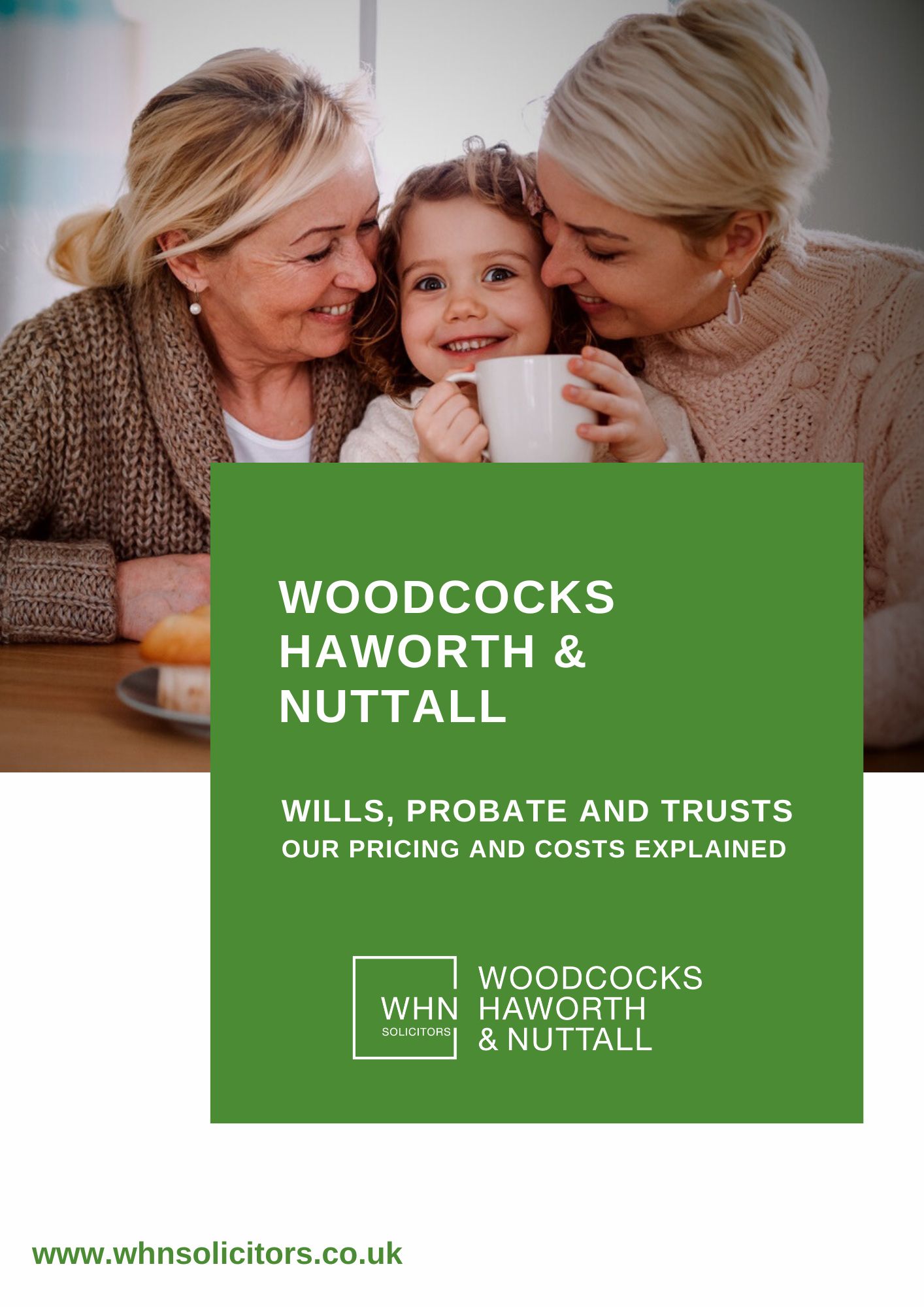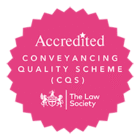
We agree that assets are not necessarily the most important part of life, but they are something we leave behind and can often be a benefit to those who inherit them.
Although not pleasant to think about, if you become incapacitated or die, it’s important to ensure that you have adequately protected yourself, your loved ones, and your financial security.
How can we help?
At Woodcocks Haworth and Nuttall, our expert asset planning solicitors will ensure you have done everything possible to safeguard for the future.
Working with a dedicated member of our team, you can rely on our specialist knowledge to provide practical, cost-effective solutions for all your asset planning needs.
Our service includes:
- Writing wills and reviewing wills
- Lasting powers of attorney
- Court of Protection
- Probate and estate administration
- Inheritance tax planning
- Trusts
- Care home fees
- Trust and estate management
- Will and probate disputes
- Estate and inheritance disputes
- Financial services
- Executor Advice Service
We can tailor any of these services to your needs, ensuring that you’ve received the best possible advice that provides you and your family with peace of mind for the future.
Our prices and costs explained
Our Probate team has many years of experience collectively in delivering high quality work in all matters relating to Wills and estate administration. In particular, the team has particular expertise in high value estates and Inheritance Tax matters.
To find out more about our costs, please read our guide below.
Need expert advice? Let us help
The team is made up of the following members:
- Stephen Parr – Director and Head of the Probate and Administration Department and Solicitor (Haslingden , Bury & Bacup)
- Elizabeth Groom – Solicitor (Bacup, Haslingden & Rawtenstall)
- Amy Krueger – Paralegal (Great Harwood)
- Helen Law – Senior Associate Solicitor (Great Harwood & Clitheroe)
- Catherine Hamilton – Associate Solicitor (Haslingden, Bury & Rawtenstall)
- Ryan Millward – Paralegal (Clitheroe & Haslingden)
- Jennifer Moorhouse – Associate Solicitor (Blackburn, Clitheroe & Great Harwood)
- Clare Rogers – Associate Solicitor (Accrington)
- Caroline Potts – Tax and Probate Manager
- Andrea Barker – Probate Manager
In addition, Katie Wright, Associate Solicitor and Head of Civil Litigation can assist in matters relating to contentious probate.
Please refer to the individual biographies in respect of each member of our team which sets out their experience and qualifications in relation to the administration of estates.
Read our latest blogs on wills, probate and trusts
I am not happy with the inheritance I have received, what can I do?
5 things you should not include in a will
How to avoid challenges to your will
5 reasons why you need to update your will
Inheritance and blended families: How can I ensure my step family is catered for in my will?
FAQs
For straightforward applications made online, it currently takes around 3 to 4 weeks for the Probate Registry to issue a Grant of Probate. However, if there are any complexities or errors in the application, the process can take significantly longer.
Before applying for probate, the executors must gather detailed information about the deceased’s assets and liabilities. This includes obtaining date-of-death balances for all bank accounts and valuations for premium bonds, shares, investments, personal possessions, and property. They must also establish whether the deceased had any debts and whether any gifts were made in the seven years prior to death. This process of collating information can take several months.
If the estate is liable for Inheritance Tax (IHT), the executors must complete a full IHT account and pay any tax due before applying for a Grant of Probate. It can take HMRC 2 to 3 months to review the IHT account and issue clearance for the probate application to proceed.
Once the Grant of Probate has been issued, the executors can begin collecting the deceased’s assets. This typically involves closing bank accounts, cashing in investments, selling shares and property, and settling any debts. Depending on the nature and extent of the estate, this stage can also take several months. The executors must ensure that all aspects of the estate administration are completed before distributing assets to the beneficiaries.
Contentious probate covers a wide range of legal disputes that have arisen following a person’s death, in relation to the terms of their will, their estate, or how their estate is being administered.
A contentious probate dispute may involve a challenge to the validity of a will, for example due to a lack of mental capacity, undue influence, fraud / forgery or failure of proper execution of the will. There may be a disagreement as to the interpretation of the will, or it may involve a claim by a qualifying person for reasonable financial provision under the Inheritance (Provision for Family and Dependants) Act 1975. Contentious probate disputes may also involve a disagreement as to how the Executors, or Administrators are handling a deceased person’s estate.
It is important to note that a contentious probate dispute only refers to disputes regarding a person’s estate, after their death.
It is possible to challenge a will after probate has been granted , however it is advisable to take action as soon as you are able to, as it becomes more difficult, and ore expensive, to make such a challenge, once probate has already been granted.
A claimant has six months from the date of probate to bring a claim under the Inheritance (Provision for Family and Dependants) Act 1975. After the six months has expired, an application to the court would be required, seeking permission to bring such a claim, and there is no guarantee such an application would be successful.
There are no such strict time limits for challenging the validity of a will, however, the longer a claim is left, the harder it may be to recover any assets, if the estate has already been distributed.


















